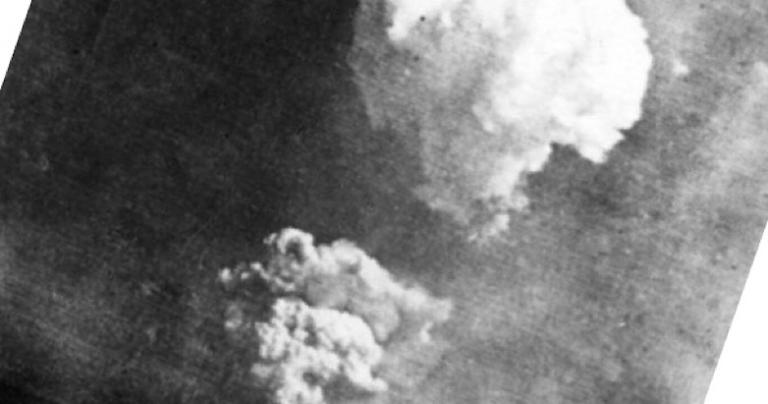
“Times are bad. Times are so bad that to stop this particular evil, we will have to do things we wish we did not have to do. We do not like it, but we cannot unilaterally disarm in the face of this particular enemy.” Just this once, because the enemy is so bad, we must do evil and hope good will come.
I have now lived long enough to have heard this about several different foes. The best cases for this policy deal with real unusual threats. The Soviet Union was an extensional threat to liberty and used brutal means to oppress people. Yet some of our actions in fighting the Soviet Union, such as arming extremists in Muslim countries continue to plague the world.
One reason I have always hesitated about the justification of doing a bad thing, so good may come is that we know we will do evil and only hope we do more good. Arm the enemy of your enemy, even if he would normally be an enemy, and you certainly will have empowered a bad man. Did you have to do this? We cannot be sure.
We can be sure we gave the Soviet Union aid to survive Hitler. Did we have to do so? Did we allow the brutal mass murderer Stalin to stay in power longer? Isn’t it at least plausible that we could have defeated Hitler without doing so?
This is not to be naive about the “righteousness” of the Allied cause. Our own moral blindness as the Western allies gives me a second concern about doing things we know are wrong to win.
There is no nation righteous, no not one. Colonial Britain and America (with our system of segregation) had much internal work to do to be just. However, the twisted moral monstrosity of a regime like Hitler’s Germany, Stalin’s Soviet Union, or Mao’s China had the Allies’ vices with few of her virtues. The Soviet Union was an empire of oppressed nations no less than the United Kingdom, but also committed intentional mass murder internally at horrific levels.
However, the moral failings of any nation, including our own, is a second reason to oppose knowingly dropping our moral standards. Why? Every nation has horrible ethical blindspots. If we intentionally give up a restraint, or cease to do something moral we do or start doing bad things we have not done, then we multiply our errors. If we are not careful, the greatest good will cease to be the best of the flawed choices humans always must make.
This is a moral caution for any human organization. Take a college as an example. The institution will do bad things without even knowing they are doing so. If the school cuts ethical corners intentionally to make money to survive, they may cease to be tolerable! I have set in meetings where the leaders knowingly trashed education for many online students, so the institution could use the money to help onsite students.
The argument was that the “world had changed” and we would have to give out mediocre education to many, so the few could learn. Whatever our flaws were, they remained, but now we were knowingly deciding to do something that not a few years before we proudly rejected. If they are so bad that we must drop the (perhaps few) virtues we do have to in order to win, then we may become as bad as what we are resisting! What are the virtues we are protecting?
Suppose, however, we go ahead and do it and remain (on the whole) morally more decent than our foe. Suppose again that we do win- unlike the Christian colleges that go online for profits only to have sold their birthright to discover that the pottage/profits, like the education, is an illusion. How do we know we will be capable of returning to the old morality?
Winning by doing bad may badly change us. We might not care any more about the old rules. Imagine a nation that hated lies and expected their leaders to tell them the truth. They know their leaders do stretch the truth, but they do not like it and would oppose any leader they discovered who planned to lie. Now postulate that this people became internally divided such that both groups believed the other was a mortal threat to the moral life of the nation. What if the group that believes it is losing gives up on truth or truth telling to win? If they win, how do they know that they can return to a love of the truth?
Again, we must live in the world as it is. Sometimes our choices are all bad and we choose the greatest good, but we must never then justify or participate in the evil of that regime. We can cheer the good without participating in the bad or coming to sound as if the bad is not so bad after all.
Fourth, we might become used to corner cutting to stop “them” and manufacture enemies to justify anything we think we need to do. The Soviet Union is not morally equivalent to the US Democratic Party. If you think it is, you do not know much about the Soviet Union. It is hard to hold the line morally and always tempting to bend the rules. The very “success” of the first compromise tempts us mightily to compromise more.
Perhaps, we must cut corners to beat Hitler, but are we prepared to beat the Nazis and then not make every war World War II?
Finally, the advice has been deeply disastrous at least as often as it has worked. Germans thought nothing could be worse than the Red Shirts in Stalin’s Russia and so backed the Brown Shirts. They ended up with two moral monstrosities and German conservative Christians were now responsible for one of them! The anti-Communists (the Whites) facing Lenin and Trotsky (the Reds), true moral monsters, in Russia whipped up the worst features of Russia as (seemingly) necessary tools to stop the Red Terror. The White Terror tainted the cause of anti-Communism and failed. To stop the French Reign of Terror by creating Napoleon did not save France and harmed all of Europe.
Too often the advice is caused by a failure of imagination or will. We have been corrupted already by other compromises, previous failures, and cutting corners seems our only way out. If we go to this solution too quickly, too easily, we risk stunting the solution that could have given us a victory without compromise and the costs that must come from such compromises.
My own life has shown me that doing the right thing is hard and often I have done the wrong thing. Unilateral disarmament comes not when we refuse to use the enemies’ tools to win, but when we throw away our best tool: the little bit of justice we have. Lincoln was right: right is might. We always doubt it, but glory, hallelujah His truth is always marching on. Times are so bad that we know we are almost surely worse than we know, so we will do all we know and never less than we know so we can live to make men holy as He died to make men free.












